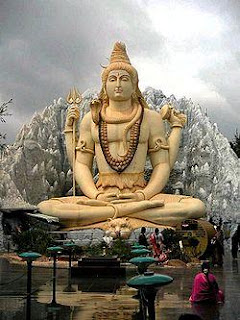 According to Wikipedia.com
According to Wikipedia.comYoga refers to traditional physical and mental disciplines originating in India. The word is associated with meditative practices in both Buddhism and Hinduism In Hinduism, it also refers to one of the six orthodox (āstika or theist ) schools of Hindu philosophy, and to the goal toward which that school directs its practices.
Major branches of yoga include Raja Yoga, Karma Yoga, Jnana Yoga, Bhakti Yoga, and Hatha Yoga Raja Yoga, compiled in the Yoga Sutras of Patanjali, and known simply as yoga in the context of Hindu philosophy, is part of the Samkhya tradition. Many other Hindu texts discuss aspects of yoga, including the Vedas, Upanishads, the Bhagavad Gita, the Hatha Yoga Pradipika, the Shiva Samhita and various Tantras.
The Sanskrit word yoga has many meanings and is derived from the Sanskrit root yuj, meaning "to control", "to yoke" or "to unite". Translations include "joining", "uniting", "union", "conjunction", and "means". Outside India, the term yoga is typically associated with Hatha Yoga and its asanas (postures) or as a form of exercise. A practitioner of Yoga is called a Yogi (gender neutral) or Yogini (feminine form).
source: http://en.wikipedia.org/wiki/Yoga



0 comments:
Post a Comment